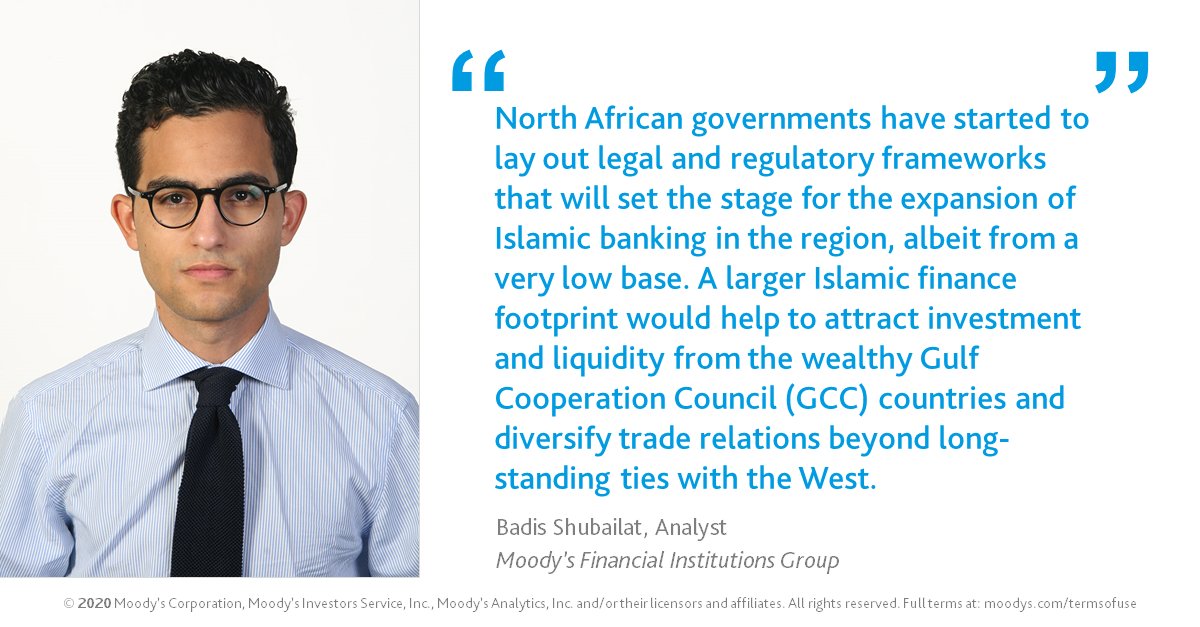Islamic banking has yet to take off in North Africa, but legal and regulatory changes mean that could be about to change

DIFC - Dubai, November 02, 2020 --
- Vast financing needs and growing government interest fuelling Africa's Islamic Finance growth
- Egypt, Morocco, South Africa and Nigeria set to lead in North and Sub-Saharan Africa
The vast financing needs of African countries and their governments' growing interest will drive Islamic Finance growth, especially a noticeable increase in banking assets, across the continent, Moody's Investors Service said in a report published today. Sub-Saharan Africa particularly has around 16% of the world's Muslim population, but its Sharia-law compliant banking assets make up only around 1% of global Islamic banking assets.
African governments have increased their presence in Islamic capital markets in recent years with numerous debut issuances. Average annual sukuk issuance for Africa was negligible until 2012 but during 2013-19 has averaged $433 million per year. Expanding into Islamic Finance would diversify funding sources for African economies and reduce funding shortfalls, currently exacerbated by the coronavirus pandemic.
"We expect Africa's large Muslim population, low starting base and growing government interest in the sector to drive growth in Islamic banking assets in the continent," says Mik Kabeya, Assistant Vice-President, Analyst at Moody's Investors Service.
Egypt and Morocco will lead growth in North Africa, while Sudan, South Africa, Nigeria and Senegal will lead in Sub-Saharan Africa, as most have large Muslim populations, along with existing and rapidly evolving regulatory and supervisory structures in place to support growth.
Specifically, Egypt's improved political confidence and Morocco's stronger economic performance relative to regional peers, along with Nigeria's low banking penetration and populous markets will provide high structural demand for Islamic banking over the next decade, as awareness of Islamic banking products increases and technology and agency banking boosts banks' outreach. However, challenges due to limited product offerings and complex documentation as well as the need for Shariah board approvals, will persist.
Overall, governments' willingness to support the sector, along with banking, legal and regulatory reforms, could establish future Islamic Finance as a key funding source across Africa.

